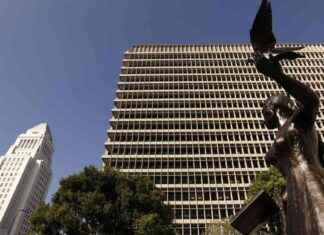Despite the economic crisis, many Germans are saving more than before during the corona pandemic because they have fewer opportunities to spend money. But the consumption bottleneck is now over. Not only can consumers spend more money again, they actually have to, thanks to inflation.
The high inflation and the uncertain world situation are partly eating up the high additional savings of many German citizens from the corona pandemic. As can be seen from data from the Bundesbank and the Federal Statistical Office, the phase of exceptionally strong growth in bank deposits is over. At the same time, private consumer spending shot up in the first quarter. This reflects, at least in part, the higher cost of living.
“At the moment, the growth in bank and savings deposits is literally falling off the cliff,” says Peter Barkow, head of the consulting firm Barkow Consulting, which specializes in the financial sector. “The last two years have been really crazy, especially in terms of the sharp increase in bank deposits.” Paradoxically, despite the economic crisis, the corona pandemic has given many households in Germany greater wealth. In the first Corona year, 2020, their sight deposits – these are the balances in current, call money and savings accounts without a term or notice period – swelled by 165 billion euros. The main reason was a consumption backlog, because the corona restrictions meant a lack of opportunities to spend money. Last year, this sum increased again by 90 billion euros, to a total of 1.76 trillion euros at the end of December.
But since then almost nothing has changed. At the end of March it was half a billion less than at the beginning of the year. “Now we have inflation on the one hand and perhaps a certain normalization of consumer behavior on the other,” says Barkow. It is not to be expected that, on balance, citizens will not be carrying any additional money to the bank or savings bank this year. Hamburger Sparkasse (Haspa), for example, reported a slight increase in current and savings deposits for the first quarter. In the meantime there are also positive interest rates on savings accounts again – albeit low ones that are far below the inflation rate. According to the spokeswoman, Haspa is currently offering 0.7 percent fixed interest savings for three years.
“We are expecting an increase in deposits, but this is likely to weaken significantly compared to previous years,” says Gregor Scheller, President of the Bavarian Cooperative Association, the umbrella organization of the 208 Volksbanks and Raiffeisenbanks in Bavaria. Like Barkow, Scheller sees in this both the consequences of inflation and a normalization of consumer behavior. “Now there is again the opportunity to spend money,” says the GVB boss. “All the households came here with excess savings,” says Jürgen Michels, chief economist at BayernLB in Munich. “Now that prices have gone up, savings are going down a bit.”
In the first quarter of this year, citizens spent far more money than in the first three months of 2021. According to the Federal Statistical Office, private consumer spending rose by 13.8 percent year-on-year, or 8.5 percent when adjusted for inflation. At first glance, this may look like a spending spree, but it must be taken into account that Germany was still in lockdown at the beginning of last year. In addition, the statisticians do not only mean holidays or restaurant visits when they say “private consumer spending”. This includes, among other things, the costs for groceries, housing and car. “The loss of purchasing power hurts,” says BayernLB chief economist Michels. “This is transfer that we make to the oil producers.”
The effects of the uncertain world situation with the Ukraine war, ongoing supply problems in industry and less than pleasant economic prospects can not only be seen in account balances. According to the “Rendite-Radar” of the asset manager Whitebox, the financial income of German households amounted to over 300 billion euros last year. In addition to bank and savings accounts, this also includes stocks, funds, life insurance and other forms of investment.
In the first quarter of this year, a balance of 73 billion euros was lost again, as the company calculated in cooperation with Barkow. “Amazingly little in view of the cumulative crises at the moment, and when you consider that the price losses at the beginning of the corona pandemic amounted to 200 billion euros in the first quarter of 2020,” says co-founder and managing director Salome Preiswerk.






